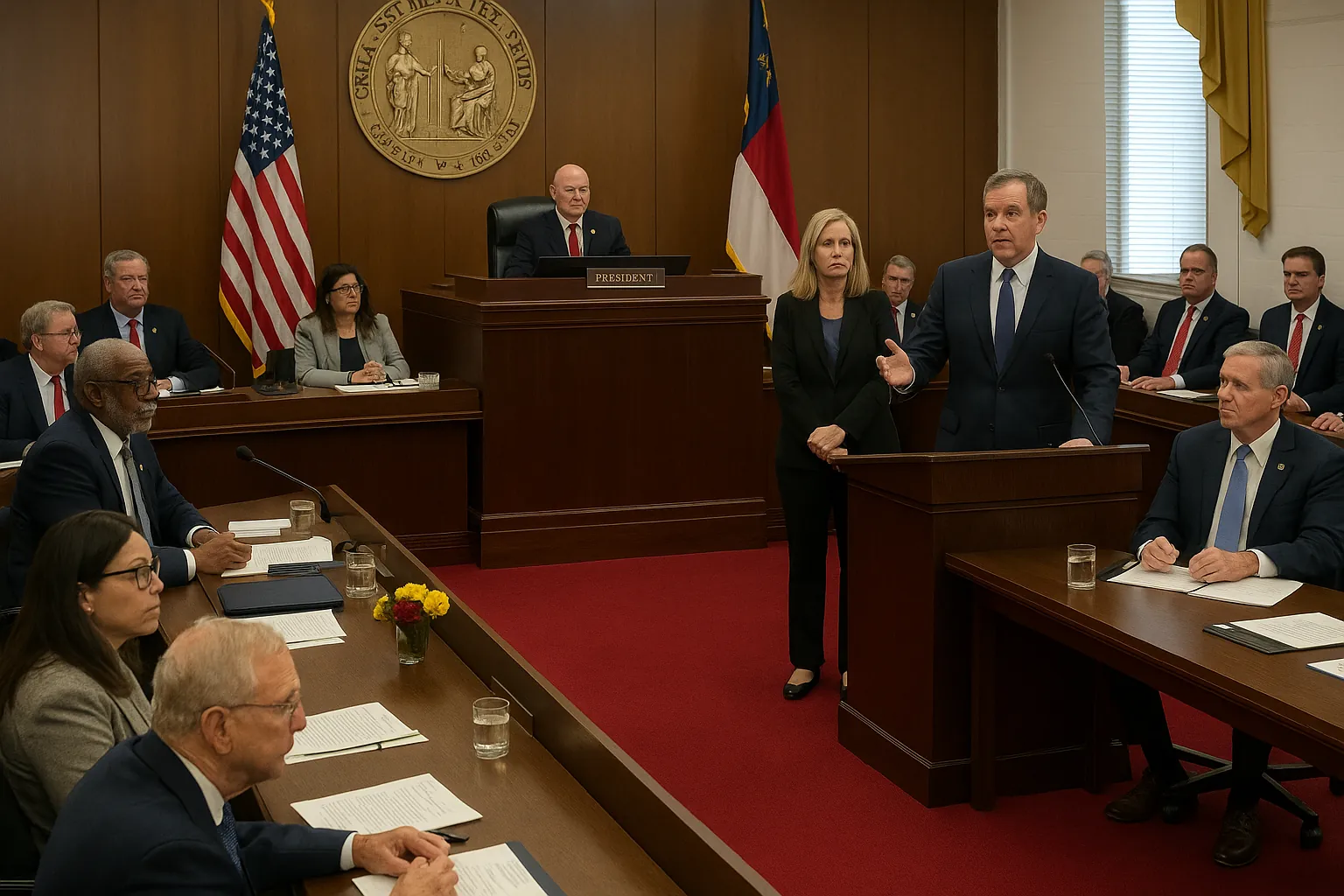The passage of Iryna’s Law in North Carolina is being hailed as a victory for public safety. But let’s not fool ourselves. This isn’t about justice for Iryna Zarutska, the Ukrainian refugee fatally stabbed on a Charlotte train. It’s about political theater, a bipartisan pact to roll back bail reforms and feed voters a sense of security while avoiding the deeper failures of the justice system.
Context: the official narrative
State lawmakers proudly announced the criminal justice package as a measure to end “catch and release.” The bill restricts cashless bail for a wide range of crimes and targets repeat offenders. Supporters argue it will keep dangerous individuals off the streets, citing rising crime rates and public anger at “soft-on-crime” policies.
Democratic Governor Josh Stein now faces a decision: sign the bill into law or veto it. Either way, the narrative is clear — North Carolina leaders want to appear tough on crime, especially in the shadow of a brutal killing that shook public opinion.
Oppositional Argument: why the mainstream is wrong
The mainstream framing misses the point. Iryna’s Law is less about safety and more about optics. Ending cashless bail doesn’t dismantle crime; it punishes the poor. Wealthy defendants walk free while low-income suspects sit in cells for weeks, sometimes months, without trial. Lawmakers are exploiting a tragedy to justify a policy that deepens inequality in the justice system.
North Carolina’s leaders aren’t addressing the causes of violence — poverty, lack of mental health care, and systemic failures in policing. Instead, they are recycling the same punitive tools that history shows do not work.
Analytical Breakdown: causes and consequences
The U.S. has been through this cycle before. Every horrific crime becomes a rallying cry for harsher laws. In the 1990s, “tough on crime” bills led to mass incarceration, disproportionately targeting minorities and the poor. Research consistently shows that cash bail systems don’t deter crime — they merely create a two-tiered justice system.
In fact, studies from jurisdictions that reformed bail, including New Jersey and Washington, D.C., found no significant rise in violent crime. The supposed “revolving door” narrative is more myth than reality, fueled by politicians seeking reelection.
By naming the bill after Iryna, lawmakers sanctify their political maneuver. But no punitive measure will honor her memory. What would have prevented her death? Better mental health intervention, community safety measures, and a justice system that identifies and manages real threats — not blanket policies that trap thousands in pretrial limbo.
Human Perspective: the human cost of cash bail
For families living paycheck to paycheck, bail can mean choosing between rent and freedom. Defendants often plead guilty just to get out of jail, regardless of actual guilt. That isn’t justice; it’s coercion.
Iryna’s story has been twisted into a symbol of toughness. But what about the countless families torn apart by a system that criminalizes poverty? Her tragedy is being weaponized to push through a law that ignores the human suffering already embedded in the bail system.
Counterarguments
Supporters claim that eliminating cashless bail will reduce repeat offenses. But data suggests otherwise. Pretrial detention often increases recidivism by destabilizing lives — jobs lost, families disrupted, communities fractured. Far from making society safer, it breeds more desperation and crime.
Another argument: “The public demands action.” True, outrage is real. But policy driven by grief and fear is rarely sound policy. Justice cannot be reactive; it must be rational.
Conclusion: a dangerous precedent
Iryna’s Law is not a step forward. It is a step back into an era of failed criminal justice strategies. North Carolina is dressing up inequality as safety and selling it to the public as justice.
If lawmakers truly cared about honoring Iryna’s memory, they would invest in prevention, not punishment. They would confront systemic failures instead of hiding behind the false comfort of cash bail.
The choice before Governor Stein is not just whether to sign a bill. It is whether North Carolina will honor victims by fixing the system or betray them by repeating its worst mistakes.
